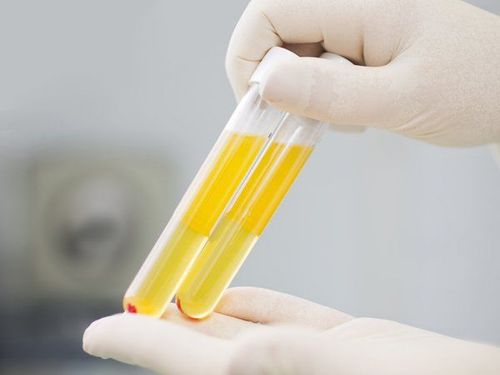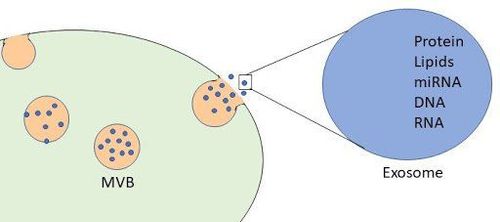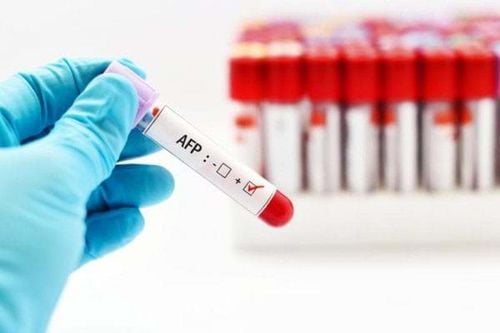This is an automatically translated article.
Article written by Dr. Than Thi Trang Uyen - Vinmec Institute of Stem Cell and Gene Technology
The diagnosis of cancer at an early stage plays an important role in the treatment and prognosis of patients. Currently, with the development of modern medicine, many methods of diagnosing cancer from an early stage have been researched, including exosomes.
According to a 2019 WHO report, cancer is currently the second highest fatal disease after cardiovascular disease, accounting for 21.3% of all deaths in the United States. Mortality is high due to the absence of early diagnosis measures and therefore the inability to treat tumors at an early stage of disease onset. Early detection and treatment of tumors has been recognized as an important factor in cancer control for many people. Any proposed treatment strategy must depend on the accurate detection of cancer markers, which are present in tumor tissue, serum and possibly other body fluids in various forms. such as DNA, miRNAs and proteins. And these markers can also be packaged in an extracellular secretory vesicle called exosomes.
Exosomes are small hermetic vesicles 40-250 nm in size and secreted by many types of cells, including cancer cells, and they can be obtained from a variety of body fluids such as: breast milk, plasma, saliva, urine, semen, wound fluid ... During the formation and secretion of the extracellular environment, exosomes are packed with various substances, including proteins, enzymes and genetic material such as DNA, mRNA, and even miRNAs from secretory cells.

Exosomes có trong tế bào ung thư và có thể thu được từ huyết tương
Recent studies on human pancreatic cancer, lung cancer, colorectal cancer, and melanoma clearly indicate that exosomes carry many proteins that are distinct from each type of cancer. For pancreatic cancer, the proportion of gliosican-1 GPC1+ in exosomes was higher in pancreatic cancer patients (100%) than in healthy subjects (mean 2.3%). Notably, the gliosican-1 marker GPC1+ is expressed very sensitively in the early stages of cancer. Another marker is macrophage migration inhibitory factor (MIF) that is highly expressed in exosomes obtained in patients with highly metastatic stage I liver cancer. In response to treatment of locally advanced pancreatic cancer, the level of vimentin in exosomes was reduced after treatment with gemcitabine, which means that vimentin in exosomes can be used as a prognostic agent for cancer progression. letters. Similar to pancreatic cancer, EGFR (epidermal growth factor receptor) was detected higher in exosomes from patients with gastric cancer, thus it could be used as a potential marker for cancer type diagnosis. this. However, the current limitation is that the concentration of cancer-specific proteins in exosomes is very low, and a large enough volume of serum or culture medium is required to isolate enough exosomes for further assays. followed by proteomic analysis or hybrid membrane immunoassay. Therefore, analysis of cancer protein markers in exosomes is still in its infancy.
Besides proteins, the genetic material in exosomes including miRNAs, lncRNAs, mRNAs and mitochondrial RNAs appears to be a potential source of biological material for tumor classification. These materials can be amplified by PCR to address the limited amount of matter, and thus make them an excellent tool for cancer diagnosis. For example, miR-103 was detected at high levels in cancer cells, or miR-638 in serum exosomes decreased with the degree of liver tumor enlargement. Furthermore, lncRNAs, such as lnc-sox2ot, lnc-h19 and lncRNA-ARSR, have been studied in circulating hematopoietic exosomes to be highly correlated with tumor stages and survival. overall patient outcomes.

Bên trong exosomes có chứa một số loại vật chất sinh học tiềm năng
Vinmec Research Institute of Stem Cells and Gene Technology (VRISG) is a non-profit biomedical research institute within the Vinmec healthcare system. The overarching goal of the Research Institute is to focus on application-oriented research in order to quickly transform inventions in basic scientific research into clinical applications. With the motto of being more creative and innovative, the Institute focuses on the following goals:
Developing medical therapies based on genes/cells to treat incurable diseases; Producing drug preparations (off-the-self) from stem cells; Development and validation of stem cell technologies; Studying the molecular and cellular mechanisms driving tissue regeneration and immunoregulatory play a decisive role in the effectiveness of developed and emerging therapies; Setting up a laboratory system that meets GMP standards for the purpose of producing stem cells and immune cells. To book an appointment & know more about the application of stem cells in the treatment of various diseases, customers can directly go to Vinmec Times City to visit or contact the hotline HERE.














